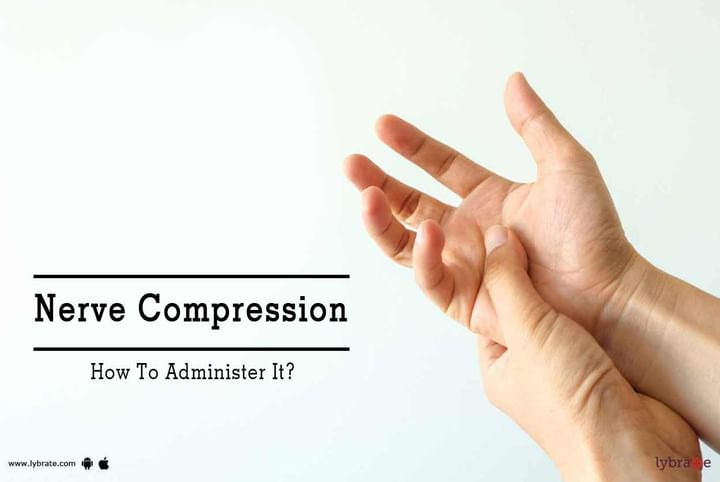Get the App
For Doctors
Login/Sign-up
Last Updated: Oct 23, 2020
BookMark
Report
Nerve Compression - How To Administer It?
Nerve compression is a condition caused by direct pressure on a nerve. It occurs when a nerve is squeezed or compacted. It is also known as compression neuropathy or entrapment neuropathy.
It typically occurs at a single location. Nerves in the torso, limbs, and extremities may be affected. Common symptoms include pain, numbness, and muscle weakness at the site of the nerve.
Nerve compression syndrome is also known as:
- nerve entrapment syndrome
- compression neuropathy
- entrapment neuropathy
- trapped nerve
Types
Mentioned below are few of the most common types of nerve compression syndromes:
- Carpal tunnel syndrome
- Cubital tunnel syndrome
- Suprascapular nerve compression syndrome
- Guyon’s canal syndrome
- Meralgia paresthetica
- Radial nerve compression syndrome
Causes
- Prolonged or repeated external force, such as sitting with one's arm over the back of a chair (radial nerve), frequently resting one's elbows on a table (ulnar nerve), or an ill-fitting cast or brace on the leg (peroneal nerve).
- Accidents such as sprains, fractures, and broken bones can also cause nerve compression syndrome
- Diabetes
- Autoimmune disorders, such as rheumatoid arthritis
- Thyroid dysfunction
- High blood pressure
- Tumors and cysts
- Pregnancy or menopause
- Obesity
- Neural disorders
Signs and Symptoms
- Pain in the area of compressions, such as the neck or lower back
- Radiating pain, such as sciatica or radicular pain
- Numbness or tingling
- Pins and needles or a burning sensation
- Weakness
- Symptoms worsen when you try specific movements, such as turning your head or straining your neck
Management
- Lifestyle changes: Avoiding movements that cause pain. Changing job duties may relieve symptoms. Losing weight can improve symptoms if obesity is the cause of nerve compression syndrome,
- Physical therapy: Flexibility, strength, and range of motion in the affected area can be improved by working with a physical therapist. Physical therapy can also relieve symptoms, such as pain and numbness.
- Medication: Drugs commonly prescribed to manage symptoms caused by nerve compression syndrome include nonsteroidal anti-inflammatory drugs (NSAIDs), such as ibuprofen (Advil) and aspirin. Corticosteroids, such as dexamethasone, are injected directly around the nerve.
- Prosthetic devices: In a few cases of nerve compression syndrome, a doctor or physical therapist may advise a splint or a brace to help avoid putting pressure on the nerve.
- Surgery: The surgical procedure required depends on the type of nerve compression syndrome, the degree of compression, and the nerves and structures affected. Surgery also depends on several factors, which include the duration of the symptoms, the severity of symptoms, and any other underlying health conditions you might have.
- Home remedies: The following home remedies may stop or ameliorate symptoms of nerve compression syndrome:
- Stop activities that cause pain
- Apply icing on the affected area for 10–15 minutes
- Taking regular breaks when doing repetitive tasks
- Applying topical creams, such as menthol
- Elevating the affected area
- Keeping the affected area warmPerforming stretches and exercises to improve strength and flexibility
- Using relaxation exercises
In case you have a concern or query you can always consult a specialist & get answers to your questions!



+1.svg)
